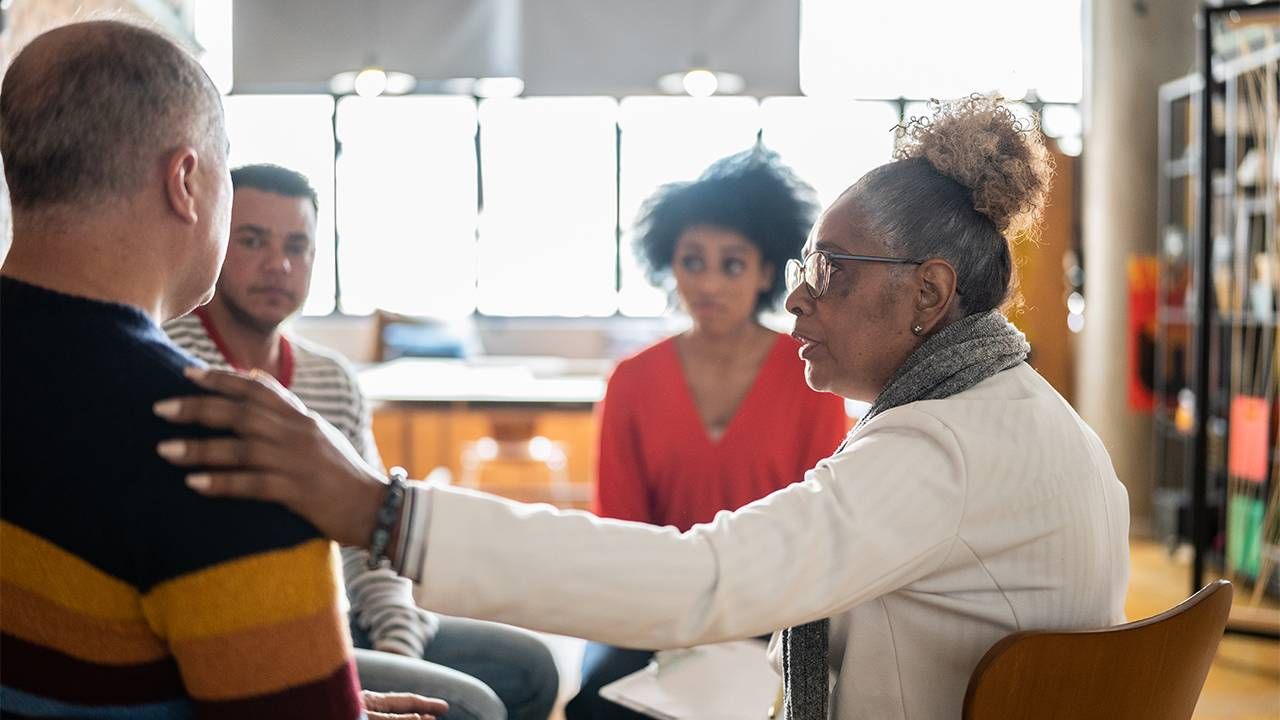Coping After a Loved One’s Suicide
Though your life is forever changed, you can learn to adapt, experts say
After his 21-year-old son, Sean, shot himself in the head in 2006, Doug Riley dealt with the crushing grief by talking about it "with anyone who would listen," he said. He told himself he was not to blame. Little by little he resumed his daily life — though it would never be the same. And he golfed.

"It was like therapy almost, get out there in nature and think of nothing but the golf game," said Riley, 64, of Hilton Head, S.C. "That really helped me a lot."
Now, Riley and his wife, Vanessa, coordinate an annual community fundraising walk in their town for the American Foundation for Suicide Prevention. Vanessa Riley has done considerable volunteer work for the group, which has helped her heal, her husband said.
"You adapt to it," he said. "You never, ever get over it."
After a Loved One's Suicide: Shock, Grief, Guilt
While those who have experienced a loved one's suicide will always carry that loss, there are things that may ease the heartache.
First, it's helpful to consider how suicide is different from other deaths.
Losing a child, spouse, sibling or parent for any reason can cause profound grief and leave a hole that will never be filled. Suicides tend to have some elements in common with other types of sudden and unexpected deaths, like car accidents and homicides, said Jack Jordan, a clinical psychologist and grief therapist in Pawtucket, R.I., who has specialized in treating suicide loss survivors.
"People are shocked," said Jordan, co-author with Bob Baugher of After Suicide Loss: Coping with Your Grief. "Even if they knew the person was depressed or having a difficult time, they usually don't think they're going to kill themselves."
Those left behind after suicide often wonder what they could have done differently. They may blame themselves for having been unable to prevent the death. They may feel betrayed — that someone they thought they knew was experiencing such turmoil and did not share it.
Sean Riley had struggled with severe depression before he took his life, Doug Riley said. In hindsight, the signs look a lot more obvious to Sean's father, such as the fact that his son was so withdrawn and his inability to get out of bed or go to work. At the time, Riley chalked it up to laziness. Now he knows better.
"Sean had a mental illness, and he died because of that mental illness," he said.
The Need for Emotional Rehab
Jordan advises bereaved loved ones to recognize that they have suffered a "deep psychological injury."
"If you're in a car accident where you broke your back, you would have to be very careful [afterward]," Jordan said. "You would have to take very good care of yourself. You'd probably have to go through a rehab unit. You might literally have to learn how to walk again." Experiencing a loved one's suicide, Jordan noted, "is kind of the psychological equivalent to that."
Concentrate on taking care of yourself, he advised. Sudden, traumatic losses can compromise the immune system and lead to illness.
Jordan also urges survivors to seek help from friends, family, a mental health professional or a support group. With the stigma that often accompanies suicide, it's even more important to find people who will support you non-judgmentally.
Groups Offer E-mail Support
If you are reluctant to join an in-person support group, the Parents of Suicide and Friends and Families of Suicide groups offer e-mail support. Once you join a group online, you will be part of email exchanges, and you can join a private chat room.
The founder of the groups, Karyl Chastain Beal of Spring Hill, Tenn., lost her 18-year-old daughter, Arlyn, to suicide in 1996. Arlyn died two weeks before she was to begin her freshman year at Tulane University on a full mathematics scholarship.
"Healthy grieving is what I call getting the support," Beal said. "Knowing what you need, not falling into the trap of smoking more and drinking more or drugging more, which is common."
Other Resources on Suicide
It will also help to educate yourself about suicide and mental illness by checking resources like these:
- The book Touched by Suicide by Dr. Michael F. Myers and Carla Fine
- The books Myths About Suicide and Why People Die by Suicide by Thomas Joiner
- The website of the American Foundation for Suicide Prevention
- The website of Parents of Suicide and Friends and Families of Suicide


